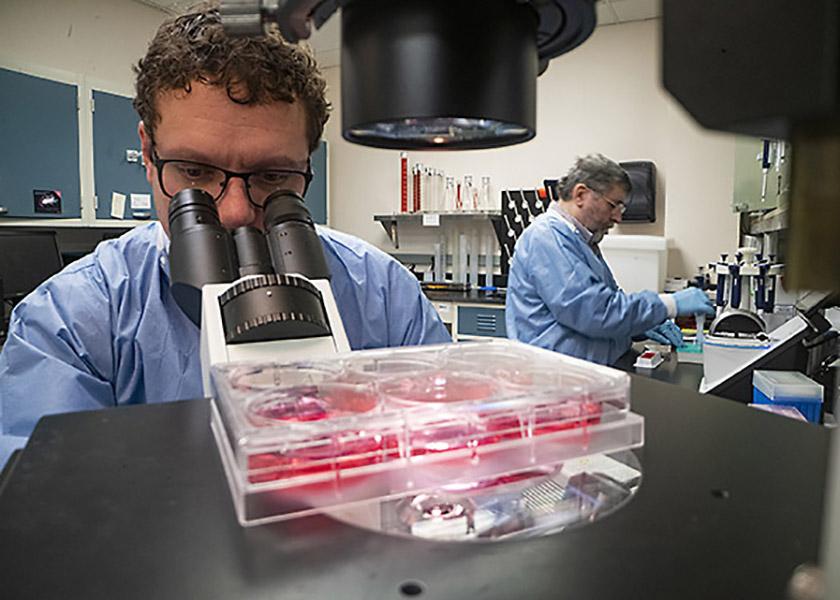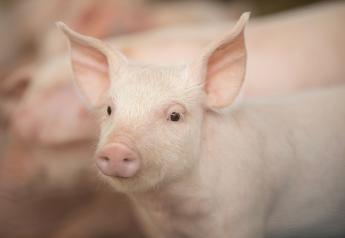ARS Advances Fight Against Deadly African Swine Fever Virus

A recent change in regulatory status may speed up commercial work on African swine fever (ASF) vaccine candidates, said Douglas Gladue, a USDA Agricultural Research Service (ARS) microbiologist at the Plum Island Animal Disease Center (PIADC).
“Three of our vaccine candidates have been removed from the Federal Select Agent list,” which is a list of agents and toxins that must be worked on in facilities with the highest level of biosafety (BSL3), he said in an ARS release.
PIADC is one of only two BSL3 facilities in the U.S. authorized to work with ASF virus. “Removal from the Select Agent list could pave the way for our vaccine candidates to be worked on in other facilities in the United States and worldwide,” Gladue said.
In the past year, ARS scientists have made two important advancements against the ASF virus. Scientists at PIADC in Orient Point, N.Y., developed several vaccine candidates by deleting genes to weaken the virus, ARS reports in a release.
By using a gene editing technique that allows DNA to be directly inserted, deleted, modified, or replaced in the genome of a living organism, the team was able to license four different ASF vaccine candidates to commercial partners for further development, according to ARS.
The team’s second major advancement, after an intensive screening process, allowed them to identify a commercially available stable cell line for diagnostic labs to use specifically in testing for infectious ASF virus.
“Until now, fresh swine macrophages (large white blood cells) were the only cells that would work in the diagnostic testing process. This required labs to continuously culture fresh cells so they would be ready if and when a sample arrived for testing,” ARS said in a release.
Fortunately, researchers said another cell line, from an African green monkey, not only works as well as macrophages but can also be frozen until needed, eliminating the need for continuous culturing.
“The advantage is enormous. You can keep the cell line in the freezer until you need it, and then you can have it in culture within 2 days,” said ARS microbiologist Manuel Borca.
This also will free up diagnostic labs from having to work to obtain donor pig blood and process the macrophages, he said in the release.
Being able to use the commercially available primate cell line will save time, labor, equipment and money. These cells are now available to diagnostic labs, including the Foreign Animal Disease Diagnostic Laboratory, part of USDA’s Animal and Plant Health Inspection Service.
The ASF virus has not reached the U.S., but continues to gain momentum around the globe in parts of Europe, Asia and Africa. The disease is almost always fatal in swine, although it poses no risk to humans. However, the significant economic losses and trade restrictions pose great challenges to the global swine industry.
ARS reports the research team is awaiting news on patenting a third important advancement in the fight against ASF.
Read more about ASF news at https://www.porkbusiness.com/topics/african-swine-fever.







